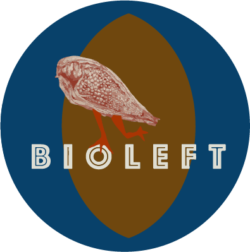From June 6 to 8, the Bioleft initiative was presented at the meeting “Conceptualizing the new commons: common examples of knowledge, seeds and plant varieties”, organized by the RightSeeds study group of the International Association for the Study of the Commons at the Carl Von Ossietzky University, in Oldenburg, Germany. There, researchers from North America, Europe and Africa shared their experiences about seeds and biological material from the perspective of common goods. Anabel Marín, from Conicet-Cenit / UNSAM, presented the opportunities that an open germplasm exchange system could create for the Argentine agricultural industry.
Food sovereignty, food security and the preservation of biodiversity are some of the objectives of those who work to democratize and open access to seeds. The global situation of the seed industry and biotechnology applied to crops is very variable: while in regions such as the United States and Europe the large multinational companies dominate most of the market and patent their varieties, in Argentina there is still room for local companies and the public sector in the improvement of seeds. The Bioleft initiative, co-designed with actors from public institutions and farmer associations, proposes to use current intellectual property laws to protect and ensure the continuous circulation of germplasm that is not yet blocked by intellectual property rights, for research and development purposes , at least.
The meeting was attended by representatives such as Jack Kloppenburg, professor at the University of Wisconsin and founder of the Open Source Seeds Initiative, and Silke Helfrich, co-founder of the Commons Strategies Group. Also researchers from universities and research centers in Germany, France, Belgium, Sweden, Hungary, Austria, the United Kingdom, the United States and Uganda. We analyzed cases of organizations that work to preserve the information contained in the seeds of privatization throughout the world. At the meeting, the first steps were taken to create a global network for open source seeds.
